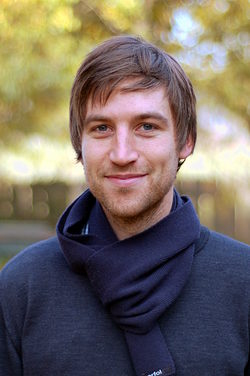People
Faculty

Elliott Ash
Elliott Ash is Assistant Professor at ETH Zurich Department of Social Sciences, where he chairs the Law, Economics, and Data Science Group. Professor Ash's research undertakes empirical analysis of law and political economy, with methods drawn from applied microeconometrics, natural language processing, and machine learning. Professor Ash was previously Assistant Professor of Economics at University of Warwick, and before that a Postdoctoral Research Associate at Princeton University. He received a PhD in economics and JD from Columbia University, a BA in economics, government, and philosophy from University of Texas at Austin, and an LLM in international criminal law from University of Amsterdam.
Elena Labzina
Elena is a postdoctoral associate in the Law, Economics, and Data Science Group in the Lab of Law & Economics at ETH Zurich. Elena works on the intersection between causal inference and machine learning in the context of the political media and its effects. Recently, her work has been focused on natural language processing. She is an enthusiastic proponent of computational social science in general. In 2018, she received her Ph.D. in political science and MA in statistics at Washington University in Saint Louis. Also, she holds MAs in political science from Central European University in Budapest and economics from New Economic School in Moscow. Her undergraduate degree in Applied Math and Computer Science is from Moscow State University.Speakers
Live Stream
Matt Salganik, Chris Bail, more coming soon.
Dirk Helbing
Dirk Helbing is Professor of Computational Social Science at the Department of Humanities, Social and Political Sciences and affiliate of the Computer Science Department at ETH Zurich. In January 2014 Prof. Helbing received an honorary PhD from Delft University of Technology (TU Delft). Since June 2015 he is affiliate professor at the faculty of Technology, Policy and Management at TU Delft, where he leads the PhD school in 'Engineering Social Technologies for a Responsible Digital Future'. He won various prizes, including the Idee Suisse Award. He co-founded the Competence Center for Coping with Crises in Complex Socio-Economic Systems, the Risk Center, the Institute for Science, Technology and Policy (ISTP) and the Decision Science Laboratory (DeSciL). While coordinating the FuturICT initiative, he helped to establish data science and computational social science in Europe, as well as global systems science.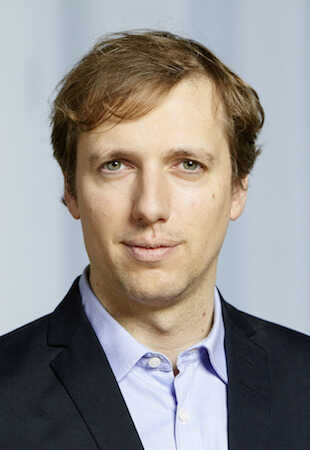
Dominik Hangartner
Dominik Hangartner is an Associate Professor of public policy and faculty co-director of the Immigration Policy Lab. After pre-doctoral fellowships at Harvard University, Washington University in Saint Louis, and the University of California, Berkeley, Dominik received his Ph.D. in social science from the University of Bern in 2011. In the same year, he joined the London School of Economics as an Assistant Professor and was promoted to tenured Associate Professor in 2013, before joining ETH in 2017. Dominik uses field work and statistics to study the effects of migration policies and political institutions. His work has been published in leading scholarly journals such as the American Journal of Political Science, the American Political Science Review, Proceedings of the National Academy of Sciences, and Science, and has received several awards including the Philip Leverhulme Prize.
Christoph Stadtfeld
Christoph Stadtfeld is Assistant Professor of Social Networks at ETH Zürich, Switzerland. He holds a PhD from Karlsruhe Institute of Technology and has been postdoctoral researcher and Marie-Curie fellow at the University of Groningen, the Social Network Analysis Research Center in Lugano, and the MIT Media Lab. His research focuses on the development and application of theories and methods for social network dynamics.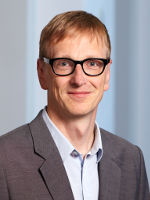
Roger Wattenhofer
Roger Wattenhofer is a full professor at the Information Technology and Electrical Engineering Department, ETH Zurich, Switzerland. He received his doctorate in Computer Science from ETH Zurich. He also worked some years at Microsoft Research in Redmond, Washington, at Brown University in Providence, Rhode Island, and at Macquarie University in Sydney, Australia. Roger Wattenhofer’s research interests are a variety of algorithmic and systems aspects in computer science and information technology, e.g., distributed systems, positioning systems, wireless networks, mobile systems, social networks, deep neural networks.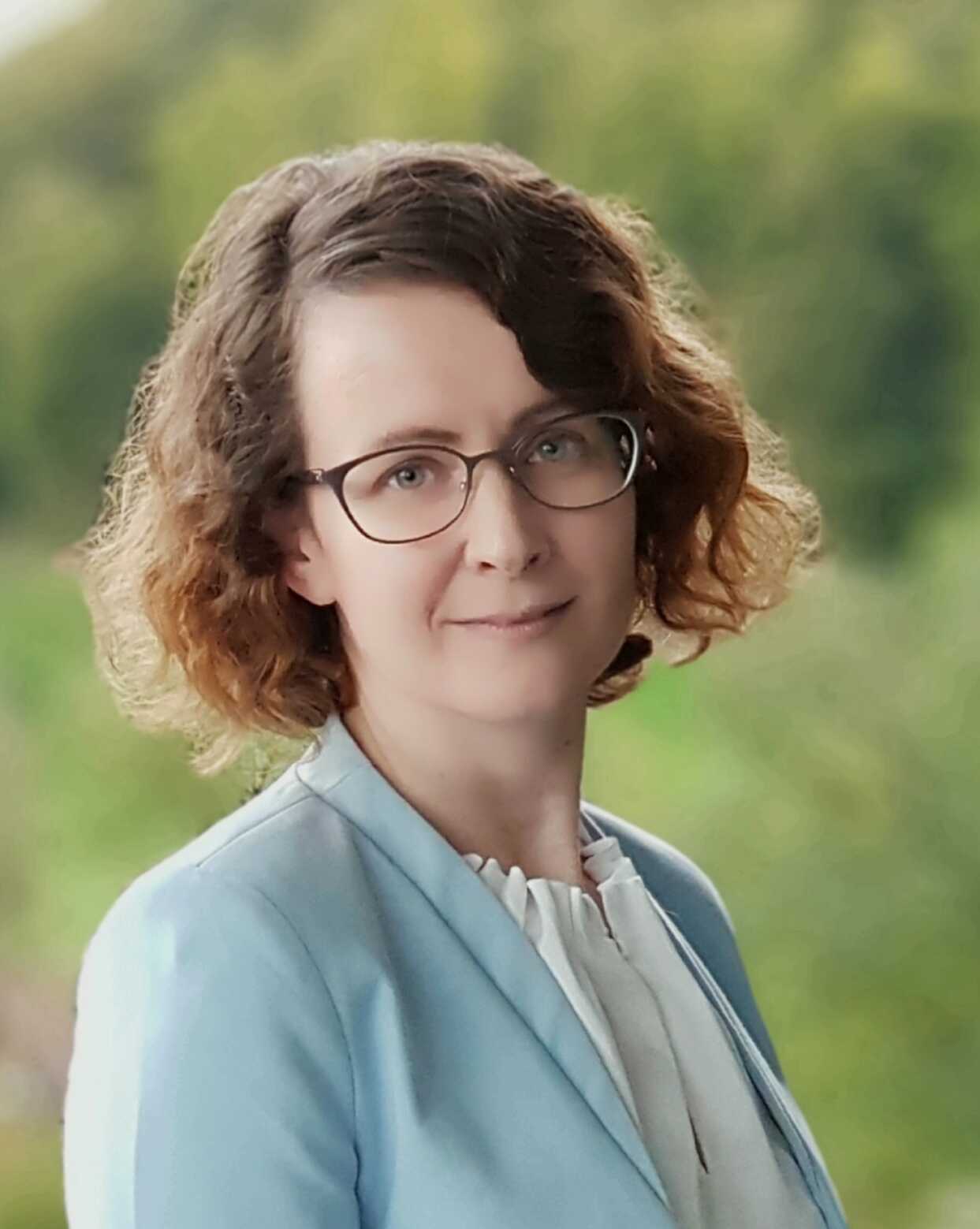
Kornélia Papp
Kornélia Papp is a senior data scientist at Swiss Re. She holds a PhD in Cognitive Semantics and has over 10 years' experience in building and managing analytics capabilities in legaltech, e-commerce and the automotive industry. She is the founder of the NLP Zurich group, an AI-driven language technology focused event series in Switzerland. Her current work focuses on document understanding solutions using rule-based programming, machine learning and deep learning techniques. She previously worked on several projects developing language technology applications in the area of speech technology, machine translation, fraud detection and natural language generation.Teaching Assistants
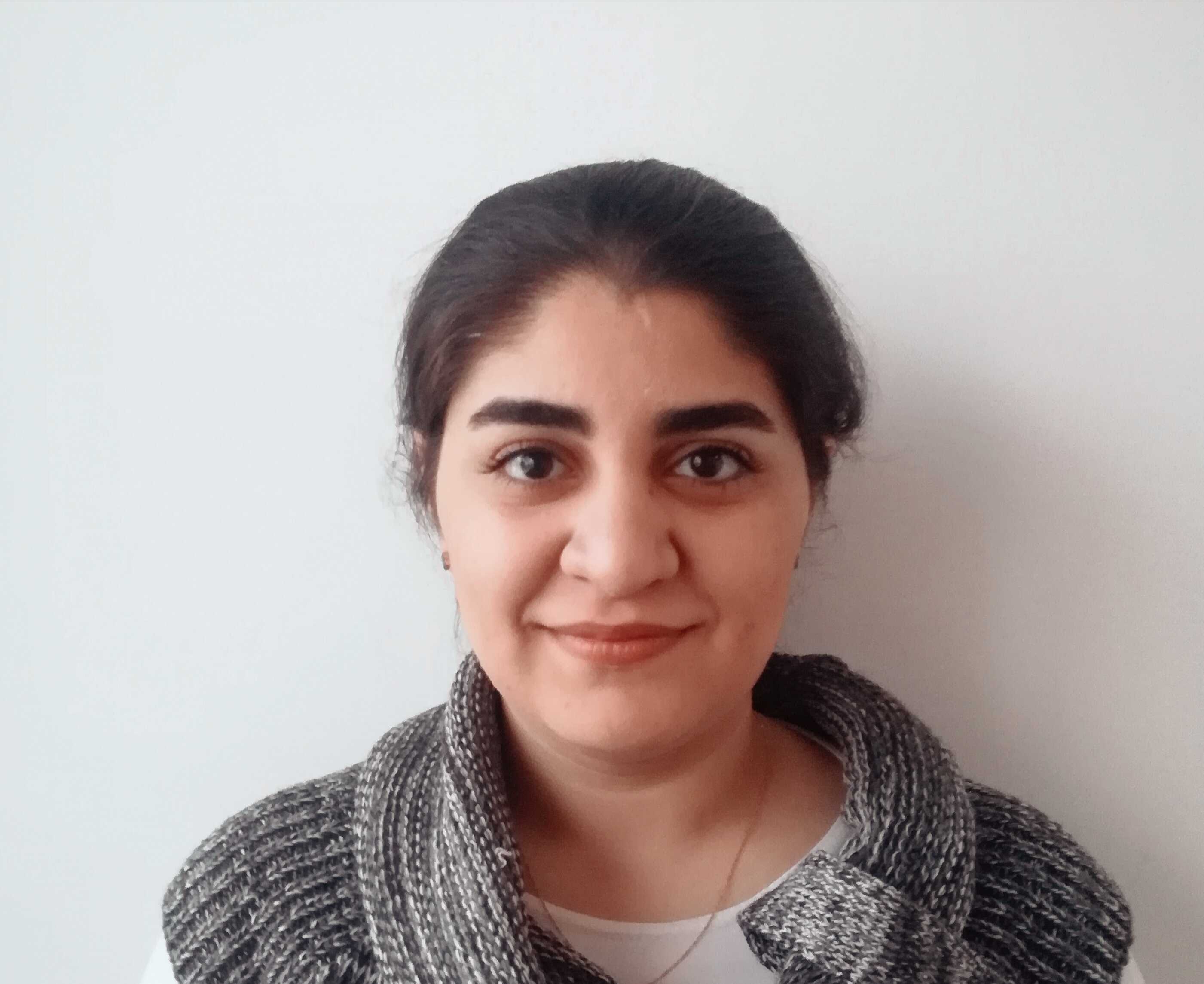
Romina Jafaryanyazdi
Romina studies Master of Computer Science at ETH Zurich. She is also Research Assistant at Law, Economics, and Data Science Group in the Lab of Law & Economics at ETH Zurich. She works on Natural language processing. Previously she was Research Assistant at Automated Software Engineering Laboratory in Computer Engineering Department at Sharif University of Technology. Also, she worked in Sharif E-commerce & E-government Research & Innovation Office. Generally, she is interested in Data mining, Machine learning, Natural language processing, and text Analysis. She did her Bachelor in Software Engineering at Sharif University of Technology.Participants
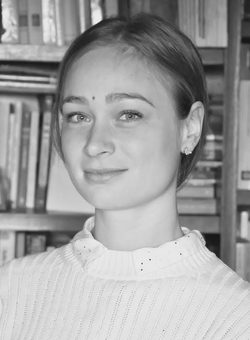
Alessandra Stampi-Bombelli
Alessandra Stampi-Bombelli is a Research Assistant at University of Zurich’s Chair of Political Economy of Development. She received a B.A. in Political Science from the University of Roma Tre and a M.Sc. in Economics from the University of Lausanne in 2017. This summer she will be starting a PhD at ETH Zurich, jointly with the Center for Law & Economics, the Public Policy Group and the Immigration Policy Lab. Her PhD will focus broadly on applying machine learning techniques to topics of empirical economics and policy and, in particular, on migration. She is currently working on a project that assesses the effect of immigrant group size on integration during the period of Mass Migration in the US. Her research interests include migration economics and policy, identity and integration, and behavioral development economics.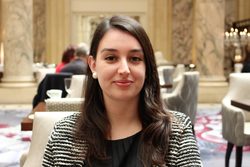
Elena Fernandez
Originally from Spain, Elena Fernandez is a PhD student in Hispanic Languages and Literatures at the University of California, Berkeley. Her current research profile incorporates Intellectual History, Cultural Studies, and History of Ideas. She is expanding her research interests to the fields of Cultural Analytics, Culturomics, Computational Social Sciences, Digital Humanities, and Natural Language Processing. She is presently working on a research project that aims to quantify mutations of the social construction of time by relating technological advancements and information fluctuation in the printed press of several countries.
Roza Kamiloglu
Roza is a PhD candidate in psychology at University of Amsterdam, the Netherlands. Her research focuses on vocal expression and perception of emotions using wide range of methods including cross-cultural comparisons. Her interests include evolutionary origins of emotional vocalizations and computational models of acoustic patterns of emotional information across species and cultures. She completed a double major in physics and psychology, followed by a master’s degree in social psychology.
Kieran Mepham
Kieran Mepham is a PhD student in the Social Networks Lab at ETH Zürich, with a BSc in social psychology and MSc in interdisciplinary social science from Utrecht University. His research interests include the development of culture, group formation, and opinion polarization, focusing on the micro-macro perspectives of these issues in networks. He currently explores these topics using traditional and novel data-gathering and analytic methods.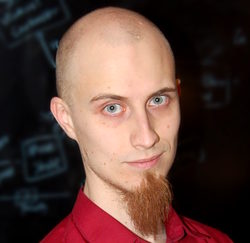
Arto Kekkonen
Arto Kekkonen is a doctoral candidate at the University of Helsinki's Faculty of Social Sciences. He is currently researching the relationship between political polarization and social media, with a specific focus on affective polarization and ingroup-outgroup dynamics. Arto has a background in media and communication studies and computer science and is broadly interested in how computational methods could be better used to answer theoretically interesting questions in social sciences.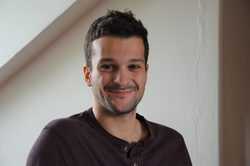
Germain Gauthier
Germain is a doctoral student in Economics at Ecole Polytechnique, CREST. He holds an MSc in Business Administration from HEC Paris and an MSc in Economics from the Paris School of Economics. He is interested in the formation, persistence and unravelling of social norms and of beliefs. Relying on social networks, surveys and administrative data, his main focus has been on the evolution of gender norms. More broadly, any topic related to political economy is likely to arouse his curiosity.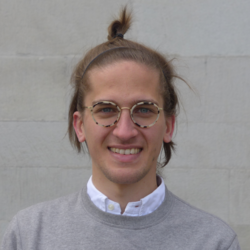
Moritz Hoferer
Moritz Hoferer is a PhD candidate in Economics at ETH Zurich. His research is about Political Campaigns on Complex Networks. In particular, he concentrates on theoretical modeling of opinion formation as well as analyzing campaign related data. Before, he studied Physics at LMU Munich and University of Milan focusing on Theoretical Biophysics.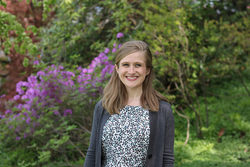
Gabrielle Mantell
Gabrielle Mantell is a master's student in European and Nordic Studies at the University of Helsinki. Her current research focuses on the use of computational and memetic propaganda within the context of global politics. She holds a MA in Science and Security from King’s College London and a BA in International Relations from Mount Holyoke College. Gabrielle’s research interests include computational international relations, machine learning and geopolitics.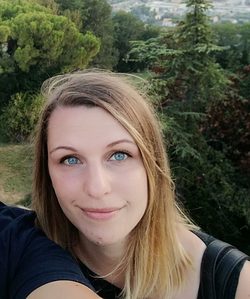
Valentina Rizzoli
Valentina is a postdoctoral researcher at the Department of Health Awareness and Communication, Istituto Zooprofilattico Sperimentale delle Venezie (Legnaro, Padua). She received her Ph.D. in Social Sciences and her M.Sc. in Social, Communication, and Work Psychology at the University of Padua. In her dissertation she applied and compared computational text analyses to chronological corpora pertaining scientific literature to portray the history of a discipline. She is currently involved in various research projects on risk communication. Her research interests include qualitative and quantitative methods in social psychology, particularly, computational text analyses applied to social issues. Main topics treated: food risk communication, history of social psychology, economic crisis, ageing.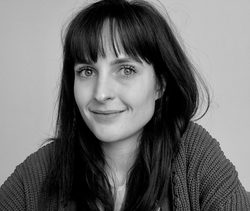
Philine Widmer
Philine is a second-year Ph.D. student in Economics at the University of St. Gallen. Her research interests include media, political, and development economics. In particular, she studies news reporting in the digital age, relying on web-mining approaches to describe which kinds of players and contents dominate news flows around the world and how they depend on institutions.
George Boateng
George Boateng is a PhD candidate and doctoral researcher doing applied machine learning research at the Center for Digital Health Interventions at ETH Zurich in Switzerland. He is currently developing a smartwatch-based emotion recognition algorithm for chronic disease management among romantic couples. His research interests are at the intersection of machine learning, mobile health, and wearable computing. He seeks to develop AI-powered mobile and wearable health apps that leverage sensor data to improve the health of people. He is also the Cofounder and President of Nsesa Foundation, an education nonprofit whose vision is to spur an Innovation Revolution in Africa. George has a B.A. in Computer Science and an M.S. in Computer Engineering, both from Dartmouth College in the U.S.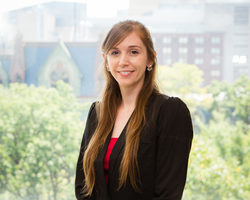
Karen Nershi
Karen Nershi is a PhD candidate in political science at the University of Pennsylvania. Her research interests lie at the intersection of international political economy and conflict, and she is particularly interested in the economic factors that drive conflict and the economic consequences of conflict and organized crime. Her dissertation examines how private financial sector interests affect countries’ enforcement of anti-money laundering laws. Before coming to Penn, Karen earned a bachelor’s degree in international studies at the University of Alabama.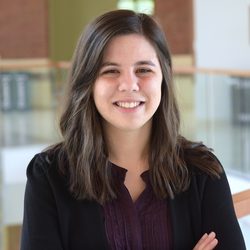
Laura White
Laura White is a third year Ph.D. student in the Politics Department at the University of Virginia, specializing in international relations and quantitative methodology. Her research interests focus on questions of reputation formation, public opinion and the electoral cycle, the role of leaders in international relations, and how states strategically interact with the domestic politics of adversaries and allies. She is especially interested in applying these themes to US-Russian relations, both past and present. Prior to attending UVA, Laura received an M.A. in Political Science from Georgia State University and a B.A. in Political Science and International Affairs from the University of Georgia.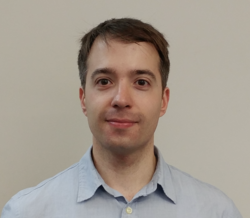
Cantay Caliskan
Cantay Caliskan is an Assistant Professor of Data Analytics at Denison University in Granville, Ohio. His research focuses on social media, political communication, lobbying, and policymaking. He uses network analysis, text analysis, visualization, and machine learning to understand how the diffusion of ideas and the distribution of political money shape and complicate the way people engage in politics.
Anastasia Voloshina
Anastasia received the Master of Science degree at the Faculty of Computational Mathematics and Cybernetics, Lomonosov State University in Moscow. Now she works as a graphic designer and visual artist in Berlin, finishing her second education, Visual Communication, at the Weissensee Academy of Art Berlin, after studying Graphic Design at British Higher School of Art and Design Moscow and Hertfordshire University, as well as Digital Arts at the University of Applied Arts Vienna. She was being exhibited in Moscow, Berlin and Vienna. At the moment Anastasia is developing her project on metadata portraits, at the same time she illustrates social aspects of everyday life in Berlin, works on visualisations for other various projects and her research on interface design project at the Fachhochschule Potsdam, University of Applied Sciences.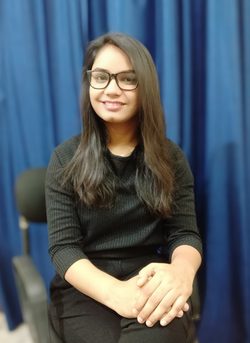
Saddaf Naaz Akhtar
I am a Ph.D. student in the field of Population Studies at Centre for the Study of Regional Development, Jawaharlal Nehru University, New Delhi, India. I received M.Sc. in Statistics and Computing from Banaras Hindu University, Varanasi and Master of Population Studies from International Institute for Population Sciences (I.I.P.S.), Mumbai, India. My research broadly focuses in combining computational methods with large-scale datasets to study demography and public health phenomena with a particular emphasis on mortality, aging, and health, specifically the methodological challenges, gender differential in mortality, as well as in the lifespan inequality, healthy aging and longevity in mortality studies. Cumulatively, my research work contributes to the fields of computational social science and public health policymaking.
Marco Ramljak
Marco Ramljak is currently working as a Geospatial Data Analyst at the consultancy Ramboll, carrying out evaluations for the public sector. Being placed in the Social and Economic Impact unit, Marco utilizes contrafactual and spatial analysis methods in projects concerning regional development as well as labor market integration. His current research interests span across developing economic smart specialization strategies for regions and cities, by drawing on ideas from economic and knowledge complexity, using network analysis as well as geographic agent-based modeling. He holds a BA in Political Science from Zeppelin University in Germany where, in his Bachelor Thesis, he scrutinized the importance of municipal politics and elections on state and federal elections, using a regression discontinuity design. In September 2019 he wants to continue his master studies in the field of social science research methods and statistics.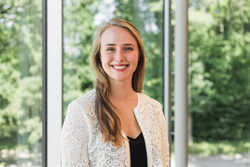
Carolin Nast
Carolin Nast is a Research Master student in Urban and Economic Geography at Utrecht University. She is interested in applying complexity theory and system thinking to the city context, more specifically to the process of developing public policy in response to current challenges we are facing. Using this theoretical lens, Carolin’s Master thesis focuses on revealing the interconnectedness among the Sustainable Development Goals, using machine learning and network analysis. Carolin received her Bachelor’s degree in Political Science from Zeppelin University in Germany and currently works as a Teaching Assistant at the Vitality Data Centre of Utrecht University.